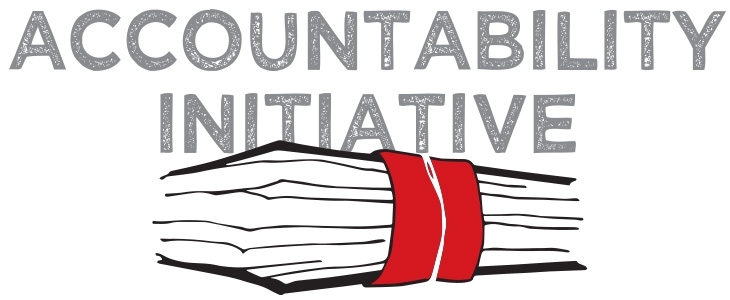
India’s Financial Drain
26 November 2010

Global Financial Integrity recently published a study, The Drivers and Dynamics of Illicit Financial Flows from India: 1948-2008, that found that India has lost $462 billion in illegal assets during the period, as a result of corruption, bribery and tax evasion. $125 billion dollars were lost in just the past decade, and nearly half the total losses were incurred after economic liberalization in 1991.
At first glance, the figure put out by this study may raise eyebrows—how can illicit financial flows possibly be measured to the point of a concrete figure? The study uses the World Bank Residual Method and the IMF Direction of Trade Statistics to arrive at outflows of $213 billion, which when adjusted for accumulated interest increases to $462 billion. The study admits that the authors regard this figure as a conservative estimate—with outflows due to smuggling and trade mispricing not considered, and disparities in trade statistics not taken into account. If these factors were included, the figure would inevitably surge. At its core, the study is a situation model examining the interplay of various factors (economic, structural, governmental) that underlie the transfer of illicit financial capital; but due to the inherent randomness of illicit financial flows, the model is not predictive—i.e. it provides indications but cannot be used to chart out the future direction of these flows.
The real value of this study then lies in its laying out of a formal approach to understanding the drivers of illicit flows and how they are dynamically engaged with one another. The motivational drivers in this context are of course difficult to test empirically—illegal financial flows are not recorded, and motivations to build hidden stockpiles of wealth are difficult to measure. The proportional interplay of these forces is what is ultimately illuminated; a perhaps first of it’s kind map of the extraordinary financial toll of corruption, bribery and tax evasion the country has incurred since its’ independence.
An interesting finding of the study is that governance and structural issues carry more of the blame for these flows than India’s macroeconomic policies. Budget deficits and inflation, while playing their roles, were only a minor contributor to the scale of illicit outflows. The consequences of these outflows described by the study—draining currency reserves and reducing tax collection—contribute toward the widening income inequalities India’s population has faced over decades.
The GFI study recommends that financial institutions should be required to identify in their records the natural (real) persons that own a financial account or any legal entity that owns a financial account.
The policy challenges this presents are immense—accelerating income inequalities have widespread consequences beyond the economic for India’s social growth and civil unrest, and the rise of money-laundering rackets have implications for national security (funding terrorism) and social health (drug and human trafficking). The government must strengthen anti-money laundering efforts and provisions to combat the financing of terrorism—efforts that the Financial Action Task Force notes are relatively young. The government also needs to aggressively collect and utilize internationally available data on banks, and pricing of imports/ exports to detect abusive transfer pricing. India also needs to strengthen existing laws in order to widen its tax base and ensure that higher income groups do not get away with tax evasion and avoidance.
A recent conference I attended on Understanding the Politics of Taxation in India, had several speakers from various civil society organizations pointing toward tax reform as a means to curb illicit outflows. There was also anger at the accommodation of hot money in island tax havens, where many claimed that billions of dollars are funneled from the private wealth of Indian citizens and then transferred back into the country for investment, in what becomes an unaccounted for vicious cycle of transfers. Moves toward domestic tax reform, would then be helped by “internationally agreed tax standards” such as those proposed at the London G20 Summit in 2009 that led to the drawing up of a tax havens blacklist. The GFI report recommendations echo this when they point toward both developed and developing countries needing to uphold standards of financial integrity with their institutions so that domestic efforts in the developing world are not undermined by weak policies on the part of developed nations.
Globalization and liberalization have led to a widening of the illicit tax haven circuit—Alex Cobham in his Oxford Council on Good Governance Report “The tax consensus has failed!”, claims that the proportion of assets in tax havens belonging to residents of developing nations like India are similar to the share of these nations in World GDP. His results show that developing countries as a whole lose approximately $50 billion annually from the use of tax havens to evade tax. As income inequalities in India become more severe, wealth becomes more concentrated within a small group of high net worth individuals—a group the GFI study claims are the “main drivers of illicit financial flows”. Apart from the use of tax havens, corporate entities also use mispricing and tax planning to help with “profit shifting”—a practice that results in the loss of tax revenue as well as capital flight. The GFI study recommends that financial institutions should be required to identify in their records the natural (real) persons that own a financial account or any legal entity that owns a financial account. Policies geared toward creating a more equal income redistribution (addressing factors like the promotion of regressive taxes, the failure to charge all income to tax), would be significantly aided by large-scale efforts toward a corporate culture that promotes giving and discourages tax evasion and avoidance.
Redistributive policies and tax reforms in India to curb illicit financial flows are urgently needed to begin to address the country’s rising shadow economy and ensure that income generated is inclusively shared by the population. These measures must be matched by strong international financial laws and institutions as well as engagement with theendemic corruption across Indian institutions and measures to improve private sector attitudes toward taxation. Given the sheer scale of financial outflows, a commitment to the policy guidelines set out by Global Financial Integrity would be a step toward addressing stagnating poverty levels and improving performance on human development.
Rishiv Khattar is a Research Intern at the Accountability Initiative.





